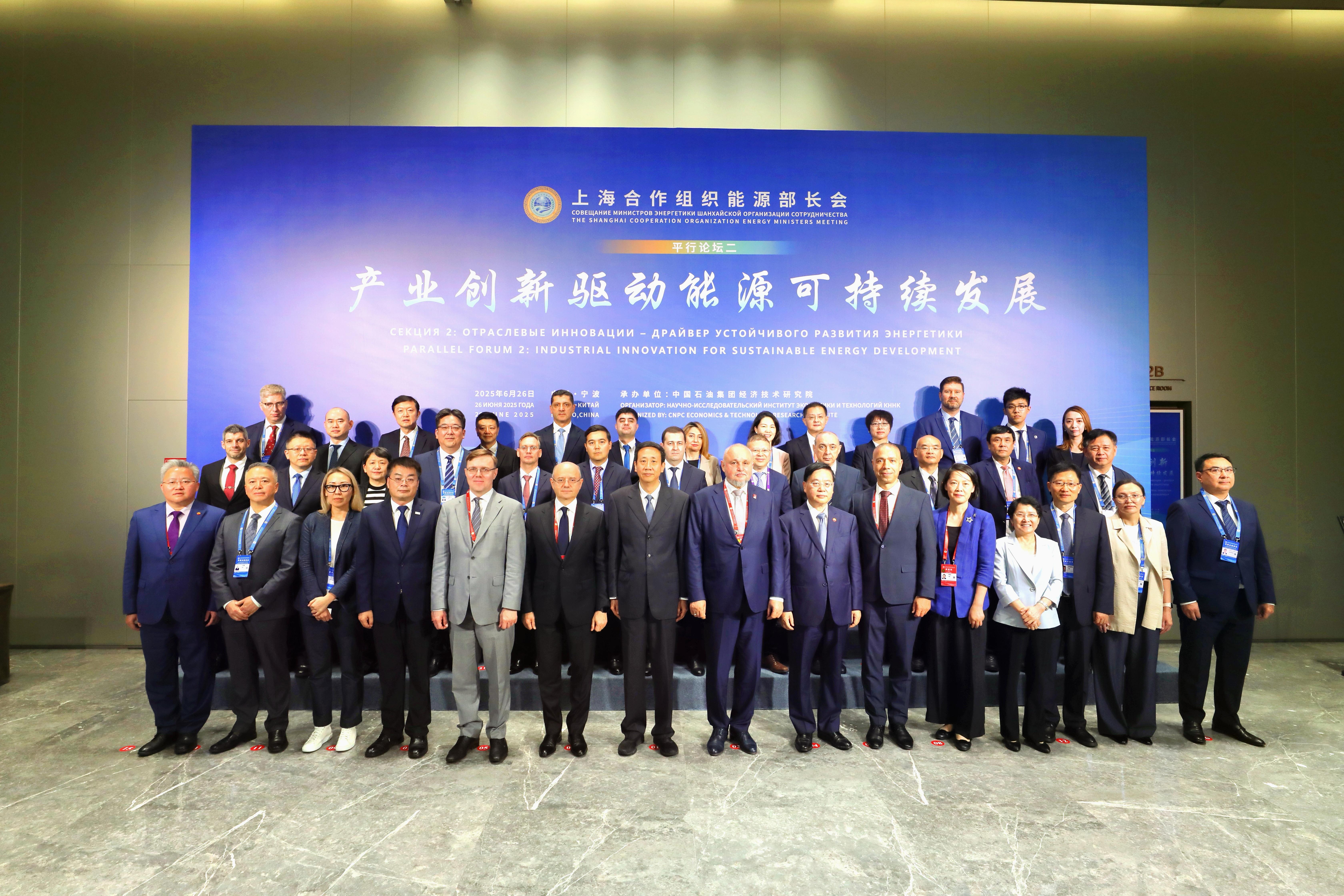Exploring Pathways for Sustainable Energy Development

Under the theme “Industrial Innovation for Sustainable Energy Development,” a parallel forum held during the Shanghai Cooperation Organization (SCO) Energy Ministers’ Meeting brought together government officials, industry leaders, and experts to explore collaborative pathways for advancing energy innovation and sustainability.
The year 2025 is the SCO Year of Sustainable Development and the forum emphasized the importance of leveraging the SCO platform to foster consensus among member states. Discussions focused on joint efforts in technology development, digital transformation, green, low-carbon growth and other key areas that can shape the future of sustainable energy across the region.
Hosted by the National Energy Administration (NEA) of China and the People's Government of Zhejiang Province, the event was organized by the CNPC Economics and Technology Research Institute, a national-level think tank. It served as a platform for stakeholders to share insights and strategies on how industrial innovation can serve as a core engine for energy sustainability.
Ren Jingdong, deputy director of NEA, highlighted the potential for complementary strengths among SCO countries in resources, technologies, and renewable energy value chains. He stressed that energy cooperation should be rooted in resource complementarity, guided by green transition goals and supported by robust and mechanisms.
“Energy collaboration not only strengthens regional energy security and economic integration but also offers a model for global sustainable development,” Ren said. He called for stronger policy coordination, technical collaboration, standardized system alignment, increased financial support, and talent exchanges to contribute an “SCO solution” to global energy governance.
Sergei Tsivilev, Russia’s energy minister, noted that the SCO recently adopted the “SCO Member States' 2030 Energy Cooperation Development Strategy,” which outlines cooperation in oil and gas, electricity, renewables, nuclear energy, coal efficiency, and energy-saving technologies.
“The implementation of this strategy will unlock the technological potential of SCO nations and open new avenues for energy collaboration,” Tsivilev remarked, expressing confidence in the vast potential for joint energy projects within the organization.
Huang Yongzhang, president of PetroChina, shared how Chinese enterprises have deepened energy cooperation with other SCO countries through infrastructure connectivity, upstream-downstream integration, and large-scale investments in oil and gas projects.
“We are committed to building a secure, interconnected, and diverse energy system based on the principles of openness, mutual benefit, and solidarity enshrined in the ‘Shanghai Spirit,’” Huang said. He urged members to work together toward a clean energy partnership and a shared vision of energy security and sustainability.
Participants held in-depth discussions on various topics, including energy industry complementarity and green development, low-carbon transformation of traditional energy sectors, innovation in renewable energy, and the digitalization of energy systems.
Azerbaijan’s Energy Minister Parviz Shahbazov praised the strong complementarities among SCO nations in energy reserves, renewable potential, infrastructure, and innovation. He emphasized that multilateral cooperation is essential in the global energy transition. “Innovation is the catalyst for sustainable development. This is not a zero-sum game. It’s about creating shared value through technology sharing, market access, and institutional cooperation,” Shahbazov said.
At the forum, the CNPC Economics and Technology Research Institute released a report, A New Vision for China-SCO Cooperation on Energy. The report outlines a comprehensive roadmap for enhancing energy collaboration between China and SCO member states.
It proposes establishing a system comprising four chains – an industrial chain, supply chain, value chain, and information chain -- to promote coordinated development. It also advocates for digital empowerment, innovation-driven mechanisms, green collaboration, risk management, and cooperative governance based on the principle of shared prosperity.
Lu Ruquan, president of the CNPC Economics and Technology Research Institute, reiterated that energy cooperation remains a top priority within the SCO framework. “To achieve sustainable development, we must balance fossil fuels and renewables, enhance market mechanisms, drive innovation, optimize policies, and strengthen coordination mechanisms to build resilience,” Lu concluded.
As the world faces increasing energy and climate challenges, the SCO’s commitment to innovation, inclusiveness, and sustainability sets a powerful example for international cooperation in the 21st century.






